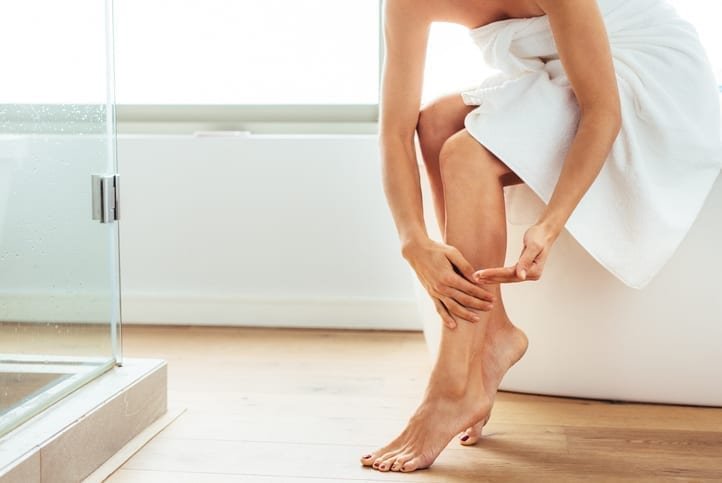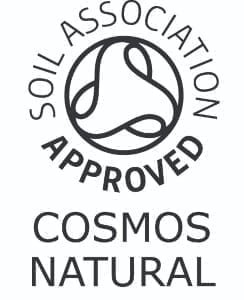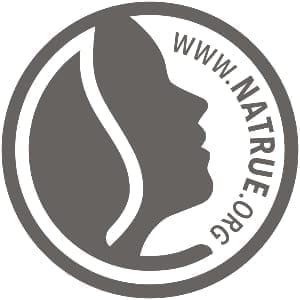This article first appeared in our winter ’19 issue of MyGreenPod Magazine, The Love Revolution, distributed with the Guardian on 22 February 2018. Click here to subscribe to our digital edition and get each issue delivered straight to your inbox
From June 2018, retailers across England, Scotland and Wales were banned from selling rinse-off cosmetics and personal care products that contain microbeads – the tiny pieces of plastic used in products such as face scrubs and toothpaste.
This ‘tough’, ‘robust’, ‘comprehensive’ and ‘world-leading’ ban was welcomed by campaigners, who saw it as evidence of the government’s commitment to cleaning up the environment. But what if microbeads aren’t the end of the issue?
While some forward-thinking beauty brands are constantly improving their products and packaging to reduce their environmental impact (see box, below), the mainstream sector is reluctant to change – particularly when it comes to plastics in cosmetics.
Who defined microplastics?
We’re all by now familiar with microplastics: they’re the tiny pieces of plastic that are either deliberately manufactured for a specific purpose, as is the case with microbeads in cosmetics, or unintentionally created through wear and tear – of anything from plastic bags to synthetic clothes.
Microplastics get confused for food and end up in the stomachs of fish, birds and turtles, among many other creatures. They persist in the food chain and end up on our plates: they have even been detected in 90% of our table salt.
Beyond watertight recycling there’s no obvious, single solution to the ‘secondary’ microplastics that are caused by wear and tear, but the intentional manufacture of ‘primary’ microplastics would be curbed if we lost the products that use them. By banning microbeads in rinse-off cosmetics, we’re on our way to preventing primary microplastics from entering the environment. But we can’t stop there: we have only scratched the surface of this problem. To tackle it head on we need a better understanding of the term ‘microplastic’.
The first people to sound the alarm about microplastics were scientists exploring the Great Pacific Garbage Patch, a mass of marine debris that sprawls across 1.6 million sq km between Hawaii and California. The scientists observed tiny pieces of plastic in the ocean and called for action on these ‘microplastics’; informed by the scientific community, the UN defined microplastics as pieces of solid plastic measuring no more than 5mm in diameter.
Removing microbeads
The revelation that cosmetics contain these solid plastics in the form of microbeads – which are added to products for exfoliating purposes – came as a shock, and it clearly required action.
In Germany, the government asked the biggest players in the cosmetics industry two questions: whether they had a definition of microplastics and whether they had any existing plans to drop them from their formulations.
The big brands marked out the lines of their own battlefield to ensure they committed to a crusade they could win. Adopting the existing UN definition of microplastics, they agreed to ban microbeads from rinse-off formulations that are washed off the skin and down the plug hole. In the UK, the ban on microbeads in rinse-off products was lauded as the toughest in the world; it came after a Greenpeace petition calling for a UK-wide ban on microplastics became the largest environmental petition ever presented to government.
So what’s the problem?
It all sounds great so far, but as awareness around microplastics grows, so too does the body of research. Now it seems our action around microbeads represented a small battle in a much larger war.
We think of plastics as solids, but some plastics are mixed into liquids to create a solid, liquid, waxy or gel-like substance, which can legally be used in everything from the rinse-off products covered by the UK’s microbeads ban to leave-on products that remain on our skin.
Moisturisers, hair sprays, makeup, body creams – you name it. If the product is conventionally produced, it’s more than likely that it contains plastic of some sort. The plastic can be powdery and so fine it’s at the lower end of the micro-scale, going into the nano-scale. Manufacturers don’t regard these suspended or emulsified plastics as solids because they’re mixed into liquids – meaning they escape the UN (and now common) definition of microplastics.
Synthetic polymers
Manufacturers have a history of dropping specific ingredients that cause isolated public outcries. When consumers called for silicones to be dropped from cosmetics, for example, big brands scrabbled for a silicone-free logo that would show customers that they were listening. But when silicone was simply replaced with polyquaternium, a synthetic polymer with an unknown environmental impact, one problem was simply swapped for another.
Synthetic polymers are still used in the majority of mainstream cosmetics because most people are simply unaware they’re there and haven’t called for change. In body creams and conditioners, synthetic polymers give the appearance of smoother hair and skin. But the plastic glossiness is only temporary – it’s like wrapping your body in cling film.
Manufacturers know that synthetic polymers can be avoided, and this is where double standards come in. Some brands have two formulations of the same product, one organic and one conventional. In the organic product, the synthetic polymers are entirely absent, but the product is no less effective.
HOW WELEDA’S TACKLING THE PACKAGING PROBLEM
85% of the glass in its 100% recyclable glass bottles comes from recycled glass – the highest share of recycled glass possible.
The product cartons are printed using mineral oil-free colour inks.
In 2017, four tonnes of materials were saved when the screw cap weight was optimised for the aluminium tubes.
The babycare PET bottles and the new roll-on deodorant containers are being redesigned; the new packaging will contain 50% and 70% recycled plastic, respectively.
Weleda sets new targets every year. By 2022 its goal is for at least 65% of the weight of all primary packaging produced to come from bioplastics
or recycled plastic.
 Play Video about This Rock Might Just Save The World
Play Video about This Rock Might Just Save The World Play Video about Play 2 hours of rock
Play Video about Play 2 hours of rock Play Video about Play 2 hours of brook
Play Video about Play 2 hours of brook Play Video about Play 2 hours of sheep
Play Video about Play 2 hours of sheep











































